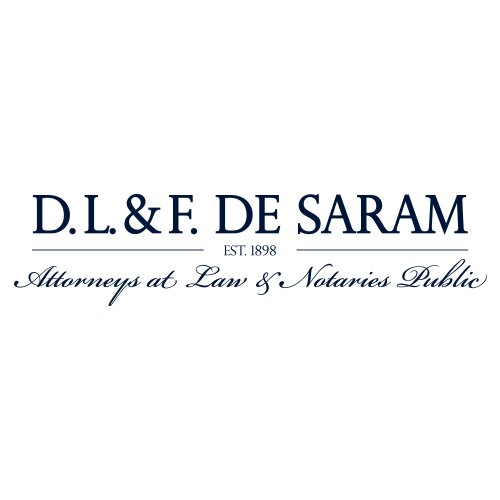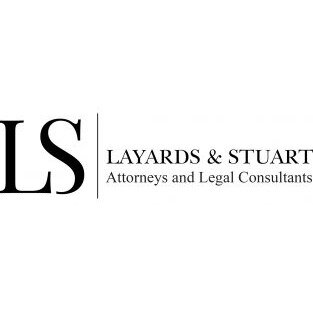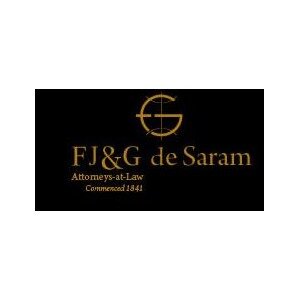Best General Litigation Lawyers in Sri Lanka
Share your needs with us, get contacted by law firms.
Free. Takes 2 min.
Or refine your search by selecting a city:
List of the best lawyers in Sri Lanka
About Litigation Law in Sri Lanka
Litigation in Sri Lanka is a critical component of the country's legal system, which governs how disputes are resolved in a formal court setting. Litigation encompasses civil and criminal cases, ranging from contractual disputes to serious criminal proceedings. The legal system in Sri Lanka is a complex mix of Roman-Dutch law, English law, and indigenous laws, which necessitates a thorough understanding of the procedural and substantive aspects of law for effective litigation.
Why You May Need a Lawyer
There are numerous situations where you may require the expertise of a litigation lawyer. Common scenarios include:
- Contract Disputes: When you are involved in a disagreement over the terms or execution of a contract.
- Property Claims: In cases where there is a dispute over property ownership or boundaries.
- Corporate Litigation: If your business is facing legal challenges, either from other businesses or regulatory bodies.
- Criminal Defense: When you are accused of a crime and require legal representation.
- Personal Injury: If you seek compensation for injuries sustained due to another's negligence.
- Family Law Issues: Such as divorce, child custody, or maintenance disputes.
Local Laws Overview
Sri Lankan litigation is primarily governed by the Civil Procedure Code and the Criminal Procedure Code, among other relevant statutes. Key aspects include:
- Adversarial System: The legal system operates on an adversarial model, where two opposing parties present their case to an impartial judge.
- Hierarchy of Courts: The system includes the Supreme Court, Court of Appeal, High Courts, District Courts, and Magistrate's Courts, each with specific jurisdiction.
- Roman-Dutch Influence: The civil law is largely based on Roman-Dutch law, influencing areas such as torts and contracts.
- Evidence Ordinance: Details the admissibility and handling of evidence in both civil and criminal cases.
- Court Procedures: Statutes outline specific procedures for initiating and conducting trials, appeals, and enforcements.
Frequently Asked Questions
What is the first step in commencing litigation in Sri Lanka?
The first step typically involves filing a plaint or complaint with the relevant court that outlines your claim and the relief sought.
How long does the litigation process usually take?
The duration can vary widely based on the complexity of the case, the court's caseload, and whether the decision is appealed. It could range from several months to several years.
What is the role of a lawyer in litigation?
A lawyer represents you by preparing legal documents, presenting arguments, negotiating settlements, and guiding you through the legal process.
Can I represent myself in court?
Yes, you can represent yourself, known as "pro se" litigation, but it is generally advisable to have legal representation due to the complexity of legal processes.
What are the costs associated with litigation?
Costs can include court fees, attorney's fees, and expenses related to gathering evidence and witness testimonies. These vary depending on the case complexity.
Is it possible to settle a dispute outside of court?
Yes, alternative dispute resolution mechanisms such as mediation or arbitration are encouraged for settling disputes amicably without litigation.
How are judgments enforced in Sri Lanka?
Judgments can be enforced through procedures such as writs of execution, which allow law enforcement to seize assets to satisfy a debt.
What should I bring to my first meeting with a lawyer?
Bring any relevant documents, such as contracts, correspondence, and any evidence related to your case, to ensure a productive initial discussion.
What is the statute of limitations for filing a lawsuit?
The time limits vary depending on the type of legal action. For example, most civil claims must be filed within two to four years, but specific legal advice should be sought.
Can foreign nationals participate in litigation in Sri Lanka?
Yes, foreign nationals can participate in litigation, but it's important to be represented by a local lawyer familiar with Sri Lankan law.
Additional Resources
Consider consulting the following resources for further assistance:
- The Bar Association of Sri Lanka - provides a directory of practicing lawyers.
- The Ministry of Justice - offers information on legal reforms and updates.
- Legal Aid Commission of Sri Lanka - provides free legal services to lower-income populations.
Next Steps
If you need legal assistance in litigation, consider taking the following steps:
- Consult with a qualified lawyer experienced in litigation relevant to your specific case.
- Gather all documentation and evidence pertinent to your legal issue.
- Explore potential alternative dispute resolution methods to see if your issue can be resolved without formal litigation.
- Follow your lawyer’s guidance in preparing for any legal proceedings, including court appearances and settlement negotiations.
Seeking professional legal advice early can significantly impact the outcome of your case, so take steps to get the help you need promptly.
Lawzana helps you find the best lawyers and law firms in Sri Lanka through a curated and pre-screened list of qualified legal professionals. Our platform offers rankings and detailed profiles of attorneys and law firms, allowing you to compare based on practice areas, including General Litigation, experience, and client feedback.
Each profile includes a description of the firm's areas of practice, client reviews, team members and partners, year of establishment, spoken languages, office locations, contact information, social media presence, and any published articles or resources. Most firms on our platform speak English and are experienced in both local and international legal matters.
Get a quote from top-rated law firms in Sri Lanka — quickly, securely, and without unnecessary hassle.
Disclaimer:
The information provided on this page is for general informational purposes only and does not constitute legal advice. While we strive to ensure the accuracy and relevance of the content, legal information may change over time, and interpretations of the law can vary. You should always consult with a qualified legal professional for advice specific to your situation.
We disclaim all liability for actions taken or not taken based on the content of this page. If you believe any information is incorrect or outdated, please contact us, and we will review and update it where appropriate.
Browse general litigation law firms by city in Sri Lanka
Refine your search by selecting a city.

















